 British Straits Settlements British Straits Settlements  |
|---|
| No. | Portrait | Name
(Born–Died) | Term of office | Background or
previous appointment | Monarch |
|---|
| Took office | Left office | Duration |
|---|
| 1 |  | Robert Fullerton
(1773–1831) | 27 November 1826 | 12 November 1830 | 3 years, 11 months | Second Member of Council,
and President of the Board of Trade | 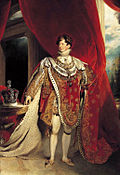
George IV |
|---|

William IV |
| 2 |  | Robert Ibbetson
(1789–1880) | 12 November 1830 | 7 December 1833 | 3 years, 25 days | Resident Councillor of the Prince of Wales Island |
|---|
| 3 | 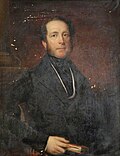 | Kenneth Murchison
(1794–1854) | 7 December 1833 | 17 November 1836 | 2 years, 11 months | Resident Councillor
of the Straits Settlements |
|---|
| 4 |  | Sir Samuel George Bonham
(1803–1863) | 18 November 1836 | January 1843 | 6 years, 1 month | Resident Councillor
of the Straits Settlements |
|---|

Victoria |
 British East India Company British East India Company  |
|---|
| 5 |  | Major General William John Butterworth
(1801–1856) | August 1843 | 21 March 1855 | 11 years, 9 months | Lieutenant-Colonel
of the 38th Madras Regiment |
|---|
| 6 | | Edmund Augustus Blundell
(1804–1868) | 21 March 1855 | 6 August 1859 | 4 years, 4 months | Resident Councillor of Penang |
|---|
 India Office India Office  |
|---|
| 7 |  | Major General Sir Orfeur Cavenagh
(1820–1891) | 6 August 1859 | 16 March 1867 | 7 years, 7 months | British Indian Army |
|---|
 Colonial Office Colonial Office  |
|---|
| 8 |  | Major General Sir Harry Ord
(1819–1885) | 16 March 1867 | 4 March 1871 | 3 years, 11 months | Special Commissioner to West Africa |
|---|
| — |  | Major General Edward Anson
(1826–1925)
(acting) | 4 March 1871 | 22 March 1872 | 1 year and 18 days | Lieutenant Governor of Penang |
| 8 |  | Major General Sir Harry Ord
(1819–1885) | 22 March 1872 | 3 November 1873 | 1 year, 7 months | Colonial administrator |
|---|
| — |  | Major General Edward Anson
(1826–1925)
(acting) | 3 November 1873 | 4 November 1873 | 1 day | Lieutenant Governor of Penang |
| 9 |  | Sir Andrew Clarke
(1824–1902) | 4 November 1873 | 8 May 1875 | 1 year, 6 months | Director of Works at the Admiralty |
|---|
| 10 |  | Sir William Jervois
(1821–1897) | 8 May 1875 | 3 April 1877 | 1 year, 10 months | Colonel of the Royal Engineers |
|---|
| — |  | Major General Edward Anson
(1826–1925)
(acting) | 3 April 1877 | August 1877 | 4 months | Lieutenant Governor of Penang |
| 11 |  | Sir William Cleaver Francis Robinson
(1834–1897) | August 1877 | 10 February 1879 | 1 year, 5 months | Governor of Western Australia |
|---|
| — |  | Major General Edward Anson
(1826–1925)
(acting) | 10 February 1879 | 16 May 1880 | 1 year, 3 months | Lieutenant Governor of Penang |
| 12 |  | Sir Frederick Weld
(1823–1891) | 16 May 1880 | 17 October 1887 | 7 years, 5 months | Governor of Tasmania |
|---|
| 13 | 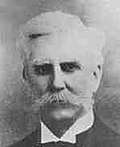 | Sir Cecil Clementi Smith
(1840–1916) | 17 October 1887 | 30 August 1893 | 5 years, 10 months | Colonial Secretary
of the Straits Settlements |
|---|
| — |  | William Edward Maxwell
(1846–1897)
(acting) | 30 August 1893 | 1 February 1894 | 5 months and 2 days | Colonial Secretary
of the Straits Settlements |
| 14 |  | Sir Charles Mitchell
(1836–1899)
Died while in office | 1 February 1894 | 7 December 1899 | 5 years, 10 months | Governor of Natal |
|---|
| — |  | James Alexander Swettenham
(1846–1933)
(acting) | 7 December 1899 | 5 November 1901 | 1 year, 10 months | Colonial Secretary
of the Straits Settlements |
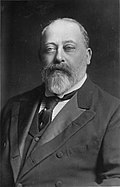
Edward VII |
| 15 |  | Sir Frank Swettenham
(1850–1946) | 5 November 1901 | 16 April 1904 | 2 years, 5 months | Resident-General
of the Federated Malay States |
|---|
| 16 |  | Sir John Anderson
(1858–1918) | 16 April 1904 | 2 September 1911 | 7 years, 4 months | Colonial administrator |
|---|
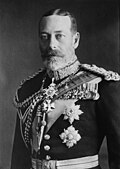
George V |
| 17 |  | Sir Arthur Young
(1854–1938) | 2 September 1911 | 17 February 1920 | 8 years, 5 months | Resident-General
of the Federated Malay States |
|---|
| 18 |  | Sir Laurence Guillemard
(1862–1951) | 17 February 1920 | 3 June 1927 | 7 years, 3 months | Colonial administrator |
|---|
| 19 | 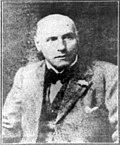 | Sir Hugh Clifford
(1866–1941) | 3 June 1927 | 21 October 1929 | 2 years, 4 months | Governor of British Ceylon |
|---|
| — |  | Sir John Scott
(1878 – 1946)
(acting) | 21 October 1929 | 5 February 1930 | 3 months and 15 days | Colonial Secretary
of the Straits Settlements |
| 20 |  | Sir Cecil Clementi
(1875–1947) | 5 February 1930 | 17 February 1934 | 4 years and 12 days | Governor of Hong Kong |
|---|
| — |  | Sir Andrew Caldecott
(1884–1951)
(acting) | 17 February 1934 | 9 November 1934 | 8 months and 23 days | Colonial Secretary
of the Straits Settlements |
|  | Sir Shenton Thomas
(1879–1962) | 9 November 1934 | 15 February 1942 | 7 years, 3 months | Governor of the Gold Coast |
|---|
| 21 |
|---|
 Edward VIII |
 George VI |
 Japanese occupation of Singapore Japanese occupation of Singapore  |
|---|















































